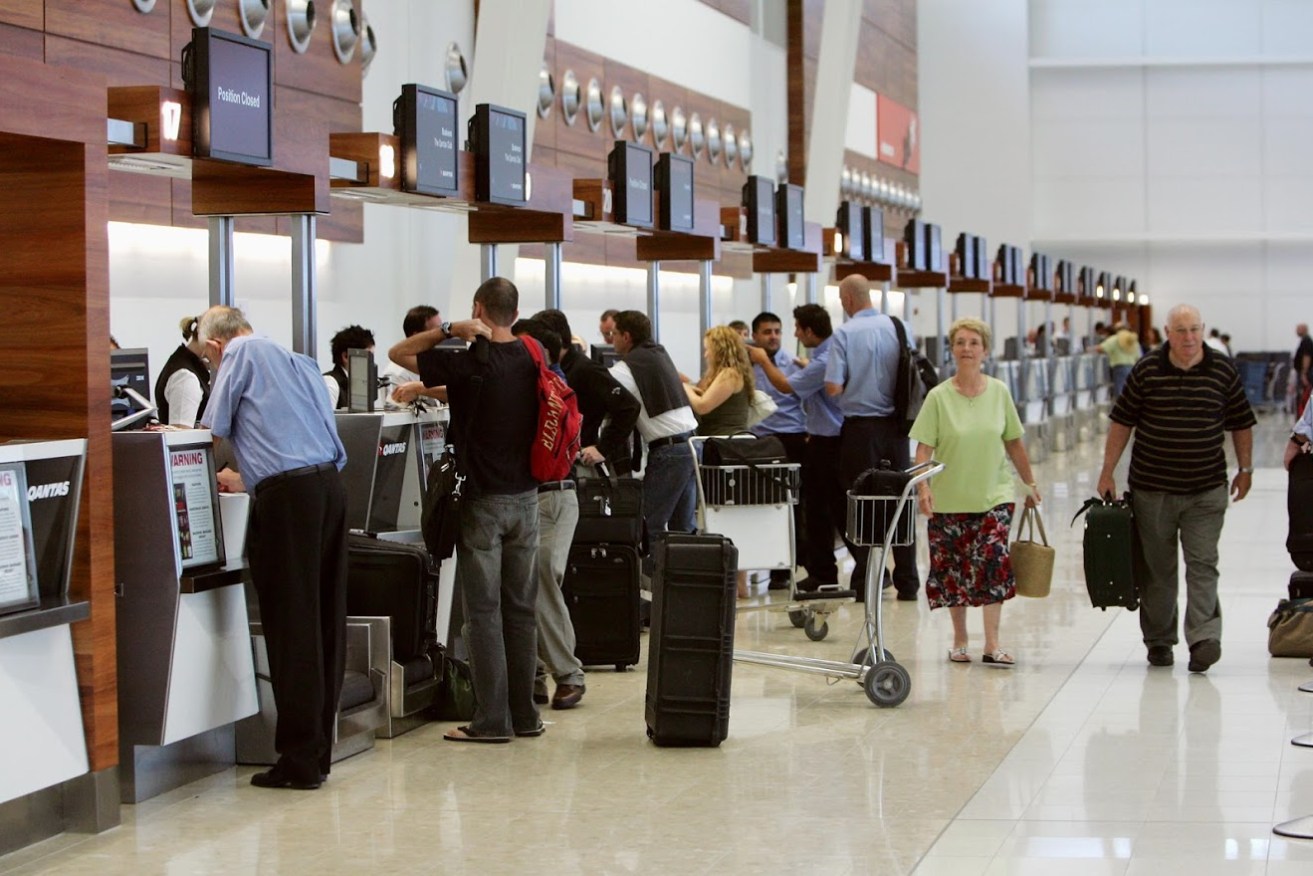Adelaide Airport to trial driverless shuttles in ‘Australian first’
Adelaide Airport will be the first airport in the country to trial driverless shuttle buses after winning a million-dollar grant from the State Government, announced today.


Passengers would be transported from the terminal to the car park using a driverless shuttle bus after Adelaide Airport won a $1 million State Government grant to trial the technology. Photo: James Knower.
The airport, Flinders University and driverless vehicle supplier RDM Group will each receive $1 million from the Government’s Future Mobility Lab Fund, said Transport Minister Stephen Mullighan.
Adelaide Airport will use the grant, and an extra $1.8 million of its own money, to trial a driverless shuttle bus service to carry passengers to and from its terminal and its long-term car park.
The airport’s sustainability manager Steph Bolt told reporters this morning Adelaide Airport would be the first in the country to trial the autonomous vehicle technology for passenger transport.
“We’re very excited about this opportunity,” she said.
“It not only positions us as a leading airport in this space but it offers an outstanding customer services opportunity for both local travellers and visitors.”
Adelaide Airport managing director Mark Young said the fleet of autonomous vehicles would replace the fleet of diesel-powered shuttle buses which services the airport’s long-term and staff car parks.
“Their compact size and agility will enable them to operate on a dedicated path at an increased frequency, potentially operating 24 hours a day, reducing road congestion and significantly lowering carbon emissions,” said Young.
“The project will include new bus shelters that feature solar PV, LED lighting, CCTV and wi-fi, while the buses will use a dedicated charging station, partially fed by our existing onsite 1.17MW solar PV generation.”
Subject to a feasibility study, the airport hopes to have the shuttle buses and bus shelters running by late 2018.
Flinders University Vice-Chancellor Colin Sterling said the university’s trial would deliver people from Tonsley train station to the university’s Tonsley campus, and carry freight around the campus.
If the trial were successful, he said, the university hoped to eventually shuttle students around its main campus.
“This is the technology of the future,” said Sterling.
He said one of the trials would involve “shuttling freight around the Tonsley Campus … but also we’re looking to be able to deliver visitors from the Tonsley train station and be able to deliver them, door-to-door, to their [desired] location”.
“The good thing about these [driverless] pods is that the ‘drivers’ don’t get tired – so we’d expect them to be running pretty continuously.
“We look forward to being able to shuttle our students around the campus with great ease, autonomously.”
He said the trial would soon go out to tender, and that the university expected to launch it within “three to six” months.
RDM autonomous program director Roger van der Lee said Adelaide would be the base for the UK company’s manufacturing operation in the Asia-Pacific region and that the autonomous transport industry was on the cusp of a boom.
“I’ve heard all sorts of figures bandied around – [but] by 2030 we’re talking tens of millions [of vehicles] in the Australian and the Asia Pacific region,” he said.
He said the company understood consumer anxiety about getting into a vehicle without a driver, but he said the vehicles were safe for passengers.
“The technology is quite advanced – probably too advanced in some [respects] because if a bird flies past it, it will want to stop – the sensitivity is quite high.”
Mullighan said the three recipients of money from the Future Mobility Lab Fund were “leveraging almost nine million (dollars) of investment here in South Australia”.
“These vehicles are becoming increasingly popular around the world … [giving] people more transport options to get to where they’re going.”
He said the Government had received 42 applications for grants from the fund.
The Adelaide Airport, Flinders University and RDM trials are among seven projects that were awarded funding – $5.6 million in total – in the first round of grants from the $10 million Future Mobility Lab Fund, leaving $4.4 million yet to be allocated.




